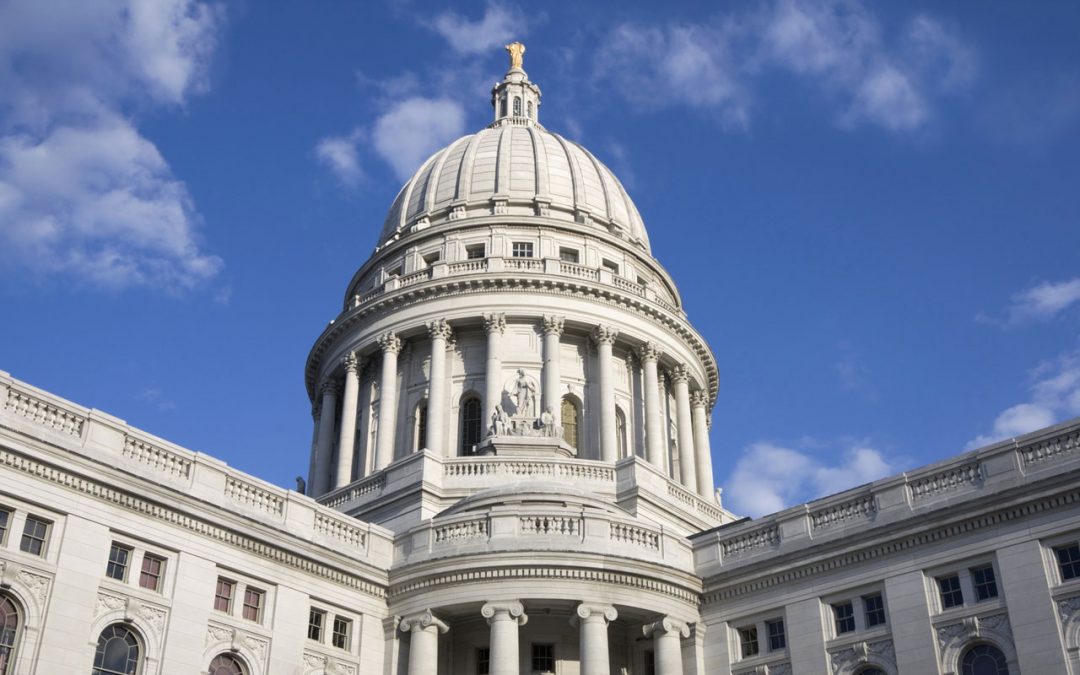On February 28, Governor Tony Evers released his 2019-2021 state budget. The budget bill will now go to the Joint Finance Committee who will review it and get briefings on the various provisions from the Governor’s administration and specific state agencies. The committee will also hold a series of hearings around the state to learn what the general public thinks about the budget bill provisions. By statute, the budget bill is supposed to be complete by July 1st, but that date is not often met, regardless of which party holds power. Between now and then, please contact your state legislators and let them know what you think about the various provisions of the bill. You can find your legislator’s contact information by following this link.
Below is a short summary of the Governor’s proposals related to clean energy.
100% Carbon-Free Goal
Establishes a state goal that all electricity produced within the state should be 100 percent carbon-free by 2050. While not a mandate or requirement, writing this goal in Wisconsin’s statutes will help state agencies, the legislature and the public know what we are trying to achieve.
Allocate $75 million in bonding to fund energy conservation projects on state-owned facilities. $25 million of these funds would be allocated to renewable energy projects.
These funds will be used for energy conservation projects to help state agencies and UW System meet their energy reduction goals and reduce utility costs. Renewable projects could include solar, wind, standby generators or geothermal enhancements to state facilities. The achieved savings from the reduction in utility costs would be used to pay the debt service payments on the bonds.
Focus on Energy
Allows the Public Service Commission to increase funding for the Focus on Energy program beyond the current statutory limit of 1.2 percent of utility revenues. The bill also requires the PSC to submit to the Joint Finance Committee a proposal for spending a greater percentage on the programs than is currently allocated (The amount is to be determined by the PSC).
Create the Office of Sustainability and Clean Energy
Transfer the State Energy Office and its employees from the PSC to the Department of Administration. The new office would:
- Administer a $4 million clean energy research grant.
- Advise state agencies in developing sustainable infrastructure to reduce energy use.
- Study and report on the status of existing clean and renewable energy efforts by the state.
- Serve as a single point of contact to assist organizations pursuing clean energy opportunities.
- Identify clean energy funding opportunities for private and governmental entities.
- In coordination with other state agencies, collect and analyze data needed for clean and renewable energy planning and review those plans with the governor and legislature.
Use a Portion of VW Settlement Funds for EV Charge Station Grants
Spend $10 million of the remaining $25 million from the Volkswagen emissions settlement on grants for electric vehicle charging stations. The rest would be dedicated to replacing public transit vehicles. $42 million of the original $67.1 million that Wisconsin was allocated from the settlement was spent in 2017-19 for replacement of state vehicles and the transit assistance program.
Hybrid Vehicle Registration Fees – Definition expanded to include all hybrids, not just PHEV’s
All hybrid vehicles (any vehicle that uses a battery to increase mpg) would pay the additional $75 annual fee that was originally designed to cover only Plug-in-Hybrid vehicles. This is in addition to the proposed $96 (up from $75) annual vehicle registration fee paid by all vehicles. All-electric vehicles would continue to pay the additional $100 annual fee that was already in the statutes. The fee is designed to recover the sales taxes that would have been paid if they were powered by gasoline that is used to support the transportation budget.
WEDC Tax Credits for Energy Efficiency or Renewable Energy
WEDC would be allowed to award business tax credits of 5% for investments made on projects that improve energy efficiency or that generate energy from renewable resources.
Ratepayer Advocate (Intervenor Compensation) Grants
The bill increases from $300,000 to $500,000 the annual grants the PSC is allowed to make to nonprofit corporations that advocate on behalf of utility ratepayers.
If you have any questions or would like more information about any of these energy related issues please contact Jim Boullion, RENEW Wisconsin’s Director of Government Affairs.

